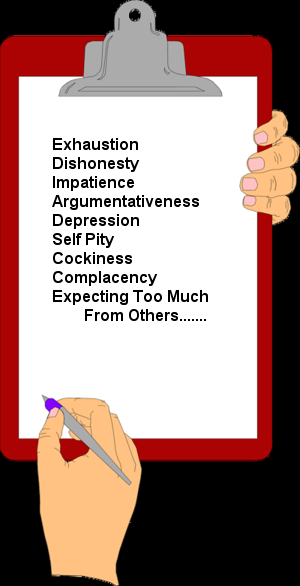The Hamster Wheel: Are You Doing the Same Thing Over and Over?
The famous phrase, “the definition of insanity is doing the same thing over and over again, yet expecting a different result” can probably best be depicted by the hamster on the hamster wheel.

Ever had a hamster as a pet? When I was eleven, I had one by the name of Mitsy. The concept of having a hamster didn’t quite measure up to the actual reality. For one, I could never pick her up and cuddle her. One attempt at doing so, Mitsy whipped her head around and sunk those two long front teeth into my finger. Here’s a helpful factoid: hamster bites HUR-R-R-R-T!!!
And then there was that hamster smell, emanating from her cage. I don’t think I need to elaborate.
The Hamster Wheel: Are You Doing the Same Thing Over and Over? Read More »


 For Christian programs that work to help addicts, the primary goal is to help them to become integrated into two vital communities — the Church and the recovery community. If our goal is truly to work ourselves out of a job, then we must make sure we are spending enough time and energy preparing our clients for life after our programs. If we don’t, we have done them a great disservice. No matter how success we are with newly sober clients, they will still leave or programs as struggling baby Christians. We must be sure that these new believers knows where to find help when they experiences struggles, even 2, 5, 10 years and more in the future, no matter where they live.
For Christian programs that work to help addicts, the primary goal is to help them to become integrated into two vital communities — the Church and the recovery community. If our goal is truly to work ourselves out of a job, then we must make sure we are spending enough time and energy preparing our clients for life after our programs. If we don’t, we have done them a great disservice. No matter how success we are with newly sober clients, they will still leave or programs as struggling baby Christians. We must be sure that these new believers knows where to find help when they experiences struggles, even 2, 5, 10 years and more in the future, no matter where they live.



